Wines Germany - Palatinate - Rebholz
We are proud of our large number of unique locations. Our homeland benefits from a diverse, valuable soil structure based on slate, red sandstone, limestone and Rotliegend.

The story of the Okonomierat Rebholz winery
A certain stubbornness, especially when it comes to the quality and purity of our wines, has been part of the Rebholz family for generations. Eduard Rebholz (1889 - 1966), who transformed the company from a barrel filler to a bottler after the Second World War, stood for the Rebholz type that is so characteristic today, out of conviction in the quality of his own wine and out of fervent defiance of the zeitgeist that tends towards excessive sweetening and a lack of transparency. With Eduard Rebholz, the title of Economic Councilor also found its way into the winery. The Economic Councilor described his idea of natural wine in June 1951:
You will only ever get natural wines from my cellar, which are the result of painstaking and loving care of the vines and the same kind of cellar management (no sugaring, no artificial sweetening or similar fundamental structural changes that take away the wine`s original character and, in my eyes, make it no longer appear as a natural product).
We believe that the quality of the wine that will be produced is largely determined in the vineyard. Anything that is neglected there, whether intentionally or unintentionally, can only be inadequately compensated for by even the most sophisticated cellar management. Rebholz wine is therefore the product of a viticulture that seeks to achieve the highest ripeness of the grapes using all the means available to it, and a cellar management that does not harm the wine in any way. We not only refrain from the legally permitted wine improvement by adding sugar or sugar water... but above all we strictly reject those legally permitted `modern methods` of wine treatment (stopping fermentation, adding sweet wine or grape juice, etc.), which all serve only one purpose: sweetness; the sweetness that is supposed to dominate the wine and make it appear more valuable.
Hans Rebholz (1920-1978) also continued the legacy of the dry, then unfashionable, but clean and sublime Rebholz type and experienced the renaissance of German dry wine before his far too early death.
Mrs. Christine continued to run the winery and even then had the young Hansjorg at his side, who saw on a daily basis the rejection of the fashion of the time and the commitment to the traditions of his mother and father. Hansjorg and his wife Birgit have been steering the fortunes of the winery since the mid-1990s. Like the generations before them, they stand by the principles and traditions of the house. The expansion of the operating area, joining the VDP and the commitment to sustainable management through organic and, shortly afterwards, biodynamic certification, further underpin the principles that the Okonomierat Rebholz winery stands for to this day. Principles that the next generation, including the sons Hans and Valentin, also supports.
copyright text: oekonomierat-rebholz.com
Rebholz Economics Winery
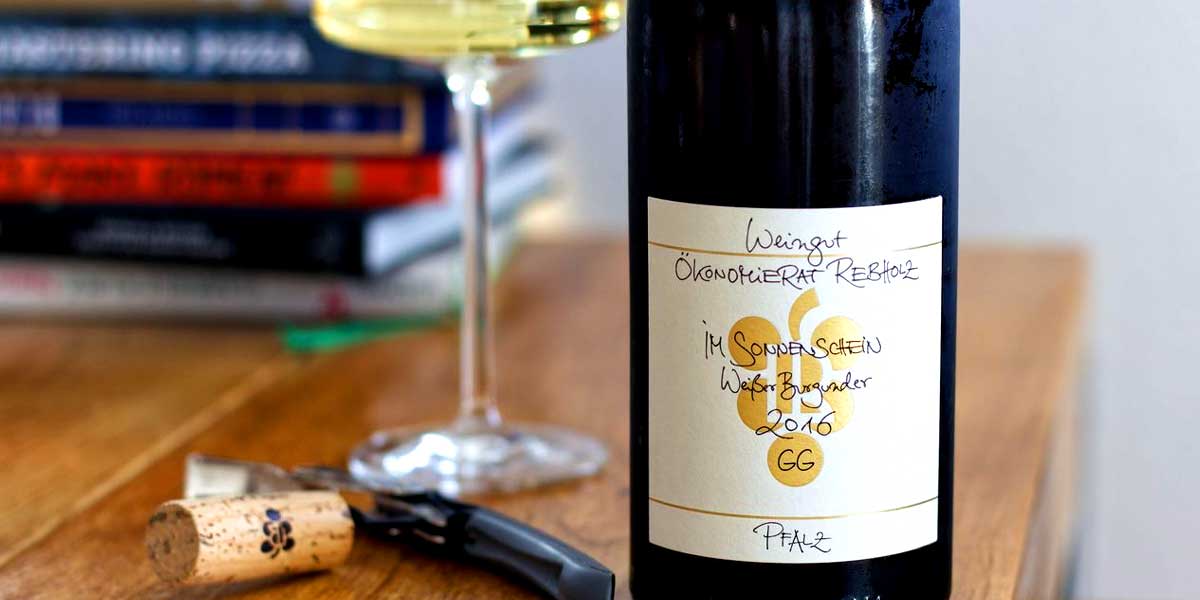
copyright photo: oekonomierat-rebholz.com
-
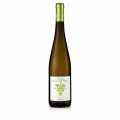
2023 Riesling from Muschelkalk, dry, 12.5% vol., vine wood, organic
750ml € 33,24 * (€ 44,32 / Liter)
NOW AVAILABLE NOW AVAILABLE Delivery of the goods within 36 hours of order and successful payment. Please also note the information on payment and shipping.item number: 40188
NOW AVAILABLE Delivery of the goods within 36 hours of order and successful payment. Please also note the information on payment and shipping.item number: 40188
-

2022 Pinot Blanc, dry, 13% vol., vine wood, organic
750ml € 17,59 * (€ 23,45 / Liter)
NOW AVAILABLE NOW AVAILABLE Delivery of the goods within 36 hours of order and successful payment. Please also note the information on payment and shipping.item number: 39737
NOW AVAILABLE Delivery of the goods within 36 hours of order and successful payment. Please also note the information on payment and shipping.item number: 39737
-

2022 Mandelberg Weisser Burgunder GG, dry, 14% vol., vine wood, ORGANIC
750ml € 70,82 * (€ 94,43 / Liter)
NOW AVAILABLE NOW AVAILABLE Delivery of the goods within 36 hours of order and successful payment. Please also note the information on payment and shipping.item number: 39738
NOW AVAILABLE Delivery of the goods within 36 hours of order and successful payment. Please also note the information on payment and shipping.item number: 39738
-

2022 Kastanienbusch Riesling GG, dry, 12.5% vol., Rebholz, ORGANIC
750ml € 83,44 * (€ 111,25 / Liter)
NOW AVAILABLE NOW AVAILABLE Delivery of the goods within 36 hours of order and successful payment. Please also note the information on payment and shipping.item number: 39739
NOW AVAILABLE Delivery of the goods within 36 hours of order and successful payment. Please also note the information on payment and shipping.item number: 39739
-

2022 Im Sonnenschein Riesling GG, dry, 12.5% vol., Rebholz, ORGANIC
750ml € 73,77 * (€ 98,36 / Liter)
NOW AVAILABLE NOW AVAILABLE Delivery of the goods within 36 hours of order and successful payment. Please also note the information on payment and shipping.item number: 39740
NOW AVAILABLE Delivery of the goods within 36 hours of order and successful payment. Please also note the information on payment and shipping.item number: 39740
-

2022 Muscat, dry, 12% vol., vine wood, organic
750ml € 20,09 * (€ 26,79 / Liter)
NOW AVAILABLE NOW AVAILABLE Delivery of the goods within 36 hours of order and successful payment. Please also note the information on payment and shipping.item number: 39743
NOW AVAILABLE Delivery of the goods within 36 hours of order and successful payment. Please also note the information on payment and shipping.item number: 39743
-

2021 Chardonnay R, dry, 13% vol., vine wood, organic
750ml € 55,53 * (€ 74,04 / Liter)
NOW AVAILABLE NOW AVAILABLE Delivery of the goods within 36 hours of order and successful payment. Please also note the information on payment and shipping.item number: 39741
NOW AVAILABLE Delivery of the goods within 36 hours of order and successful payment. Please also note the information on payment and shipping.item number: 39741
-

2021 Mandelberg Weisser Burgunder GG, dry, 13% vol., vine wood, ORGANIC
750ml € 64,91 * (€ 86,55 / Liter)
NOW AVAILABLE NOW AVAILABLE Delivery of the goods within 36 hours of order and successful payment. Please also note the information on payment and shipping.item number: 39744
NOW AVAILABLE Delivery of the goods within 36 hours of order and successful payment. Please also note the information on payment and shipping.item number: 39744
-

2021 Kastanienbusch Riesling GG, dry, 12.5% vol., Rebholz, ORGANIC
750ml € 76,79 * (€ 102,39 / Liter)
NOW AVAILABLE NOW AVAILABLE Delivery of the goods within 36 hours of order and successful payment. Please also note the information on payment and shipping.item number: 39745
NOW AVAILABLE Delivery of the goods within 36 hours of order and successful payment. Please also note the information on payment and shipping.item number: 39745
-

2021 Riesling from Rotliegend, dry, 12% vol., vine wood, organic
750ml € 28,51 * (€ 38,01 / Liter)
NOW AVAILABLE NOW AVAILABLE Delivery of the goods within 36 hours of order and successful payment. Please also note the information on payment and shipping.item number: 39746
NOW AVAILABLE Delivery of the goods within 36 hours of order and successful payment. Please also note the information on payment and shipping.item number: 39746
-

2020 Im Sonnenschein Riesling GG, dry, 12.5% vol., Rebholz, ORGANIC
750ml € 64,91 * (€ 86,55 / Liter)
NOW AVAILABLE NOW AVAILABLE Delivery of the goods within 36 hours of order and successful payment. Please also note the information on payment and shipping.item number: 39747
NOW AVAILABLE Delivery of the goods within 36 hours of order and successful payment. Please also note the information on payment and shipping.item number: 39747
-

2020 Kastanienbusch Riesling, GG, dry, 12.5% vol., Rebholz, ORGANIC
750ml € 72,82 * (€ 97,09 / Liter)
NOW AVAILABLE NOW AVAILABLE Delivery of the goods within 36 hours of order and successful payment. Please also note the information on payment and shipping.item number: 39749
NOW AVAILABLE Delivery of the goods within 36 hours of order and successful payment. Please also note the information on payment and shipping.item number: 39749
-

2019er Ganz Horn Riesling GG, dry, 12.5% vol., Rebholz, BIO
750 ml € 62,77 * (€ 83,69 / Liter)
NOW AVAILABLE NOW AVAILABLE Delivery of the goods within 36 hours of order and successful payment. Please also note the information on payment and shipping.item number: 34471
NOW AVAILABLE Delivery of the goods within 36 hours of order and successful payment. Please also note the information on payment and shipping.item number: 34471
-

2018er Kastanienbusch Riesling, GG, dry, 13.5% vol., Rebholz, BIO
750 ml € 72,82 * (€ 97,09 / Liter)
NOW AVAILABLE NOW AVAILABLE Delivery of the goods within 36 hours of order and successful payment. Please also note the information on payment and shipping.item number: 34469
NOW AVAILABLE Delivery of the goods within 36 hours of order and successful payment. Please also note the information on payment and shipping.item number: 34469
-

2018er Ganz Horn Riesling GG, dry, 13% vol., Rebholz, BIO
750 ml € 65,72 * (€ 87,63 / Liter)
NOW AVAILABLE NOW AVAILABLE Delivery of the goods within 36 hours of order and successful payment. Please also note the information on payment and shipping.item number: 34472
NOW AVAILABLE Delivery of the goods within 36 hours of order and successful payment. Please also note the information on payment and shipping.item number: 34472
-

2016er Ganz Horn Riesling GG, dry, 12.5% vol., Rebholz, BIO
750 ml € 70,15 * (€ 93,53 / Liter)
NOW AVAILABLE NOW AVAILABLE Delivery of the goods within 36 hours of order and successful payment. Please also note the information on payment and shipping.item number: 34473
NOW AVAILABLE Delivery of the goods within 36 hours of order and successful payment. Please also note the information on payment and shipping.item number: 34473
-

2020 Ganz Horn Riesling GG, dry, 12.5% vol., vine wood, ORGANIC
750ml € 64,91 * (€ 86,55 / Liter)
NOW AVAILABLE NOW AVAILABLE Delivery of the goods within 36 hours of order and successful payment. Please also note the information on payment and shipping.item number: 39750
NOW AVAILABLE Delivery of the goods within 36 hours of order and successful payment. Please also note the information on payment and shipping.item number: 39750
-
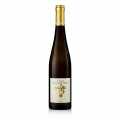
2023 Kastanienbusch Riesling, GG, dry, 12.5% vol., Rebholz, ORGANIC
750 ml € 84,18 * (€ 112,24 / Liter)
NOW AVAILABLE NOW AVAILABLE Delivery of the goods within 36 hours of order and successful payment. Please also note the information on payment and shipping.item number: 41564
NOW AVAILABLE Delivery of the goods within 36 hours of order and successful payment. Please also note the information on payment and shipping.item number: 41564
-
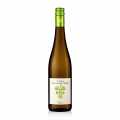
2023 Riesling QW, dry, 12% vol., vine wood, organic
750 ml € 17,65 * (€ 23,53 / Liter)
NOW AVAILABLE NOW AVAILABLE Delivery of the goods within 36 hours of order and successful payment. Please also note the information on payment and shipping.item number: 41981
NOW AVAILABLE Delivery of the goods within 36 hours of order and successful payment. Please also note the information on payment and shipping.item number: 41981
-
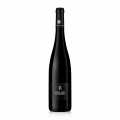
2022 Pinot Noir R QW, dry, 12.5% vol., Rebholz, ORGANIC
750 ml € 30,87 * (€ 41,16 / Liter)
NOW AVAILABLE NOW AVAILABLE Delivery of the goods within 36 hours of order and successful payment. Please also note the information on payment and shipping.item number: 41982
NOW AVAILABLE Delivery of the goods within 36 hours of order and successful payment. Please also note the information on payment and shipping.item number: 41982
-
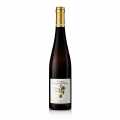
2023 Mandelberg Weisser Burgunder, GG, dry, 13% vol., Rebholz, ORGANIC
750 ml € 72,22 * (€ 96,29 / Liter)
NOW AVAILABLE NOW AVAILABLE Delivery of the goods within 36 hours of order and successful payment. Please also note the information on payment and shipping.item number: 41983
NOW AVAILABLE Delivery of the goods within 36 hours of order and successful payment. Please also note the information on payment and shipping.item number: 41983
-
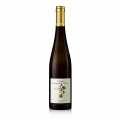
2023 Im Sonnenschein Riesling, GG, dry, 12.5% vol., Rebholz, ORGANIC
750 ml € 75,77 * (€ 101,03 / Liter)
NOW AVAILABLE NOW AVAILABLE Delivery of the goods within 36 hours of order and successful payment. Please also note the information on payment and shipping.item number: 41984
NOW AVAILABLE Delivery of the goods within 36 hours of order and successful payment. Please also note the information on payment and shipping.item number: 41984







